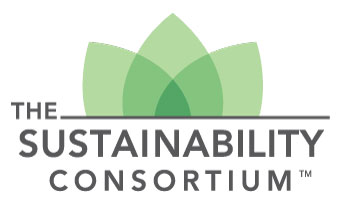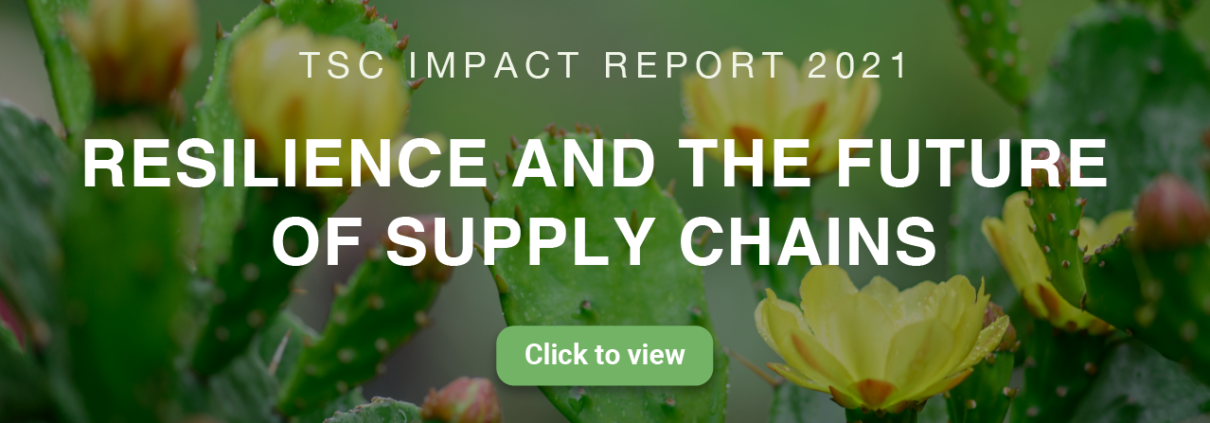New Report Shows Product Manufacturers’ Sustainability Scores Improved 38% Since 2016, Companies Pursued Improvements During Global Pandemic
Scottsdale, AZ, May 13, 2021 – The Sustainability Consortium (TSC) reported today that between 2016 to 2020, the THESIS assessments of product manufacturers have improved 38%. Scores showed that performance improved in 2020, indicating that companies pursued sustainability improvements even during the challenges of the 2020 global pandemic.
Over 1,700 manufacturers representing over $900 billion in annual consumer product sales assessed their product and supply chain sustainability using TSC’s THESIS Index. Across these years, TSC found significant improvements in:
- carbon and climate,
- water use,
- air quality,
- worker health and safety, and
- managing biodiversity in sourcing.
The average score of companies using THESIS in both 2019 and 2020 increased from 45% to 49%. Companies have made relative improvements of 38% since the baseline year of 2016.
“Long before ‘sustainability’ became a buzz word, it was simply a way of doing business at Henkel,” said Rob Anson, Director of International Business Development, Henkel. “Today with help from THESIS, Henkel has set ambitious targets as part of a comprehensive sustainability strategy, which aims to add value while reducing its environmental footprint. Together with partners like TSC, we’re advancing sustainability along the entire value chain.”
In their 2021 Impact Report, Resiliency and the Future of Supply Chains, TSC details that some companies are making good progress, especially in textiles and electronics, while several issues remain systematic challenges, like sustainable packaging and deforestation. Additionally, 45% of THESIS users only report sustainability data to THESIS, nowhere else. 23% of manufacturers worked with their suppliers on sustainability issues, and almost 9% of those manufacturers included sustainability requirements in their supplier contracts
TSC Chief Executive, Euan Murray, states, “Creating resilient, net-zero, circular, sustainable products and supply chains has never been more critical. And in spite of the headwinds of 2020, companies continue to step up. The THESIS data we share in this report shows ongoing improvements in supply chain transparency and sustainability. The results are better than they have ever been.”
“At Ocean Spray, we are committed to a healthier planet, full of healthier people. We are working diligently to see this commitment a reality, and it is critical that we continue to work collaboratively within a variety of industry sectors and through our participation in THESIS. It is through partnerships with organizations like TSC, shared learning and collaborative work that we will meet the sustainability challenges that we all face, and it is together that we can create truly innovative and sustainable supply chains,” said Jennifer Bowe, Associate Manager, Global Impact and Sustainability.
TSC translates the best sustainability science into business tools that are used all over the world to create more sustainable consumer products. Their full impact report is available here.
About TSC
The Sustainability Consortium (TSC) is a global non-profit organization transforming the consumer goods industry to deliver more sustainable consumer products. We work to enable a world where people can lead fulfilled lives in a way that decouples their impacts on people and the planet. Our members and partners include manufacturers, retailers, suppliers, service providers, NGOs, civil society organizations, governmental agencies and academics. TSC convenes our diverse stakeholders to work collaboratively to build science-based decision tools and solutions that address sustainability issues that are materially important throughout a product’s supply chain and lifecycle. TSC also offers a portfolio of services to help drive effective improvement and implementation. Formed in 2009, TSC is jointly administered by Arizona State University and the University of Arkansas and has a European office at Wageningen University and Research in the Netherlands. For more information visit www.sustainabilityconsortium.org.
Press inquiries contact:
Erika Ferrin
TSC
Sr. Director of Marketing, Communication and Development
Erika.ferrin@sustainabilityconsortium.org
480-965-7752





